Procurement software companies
CLM EVOLVES INTO CONTRACT INTELLIGENCE
Supercharging your contracts with AI
SEEING RISK MANAGEMENT ANEW
The future is data-driven
BRIDGESTONE EMIA’S

Procurement software companies
CLM EVOLVES INTO CONTRACT INTELLIGENCE
Supercharging your contracts with AI
SEEING RISK MANAGEMENT ANEW
The future is data-driven
BRIDGESTONE EMIA’S
Bridgestone’s CPO, Lars Bettermann on how the global leader in tyres and sustainable mobility solutions have transformed their procurement function




26 - 27 September 2023
Business Design Centre, London
SPONSORSHIPS GET YOUR PASS

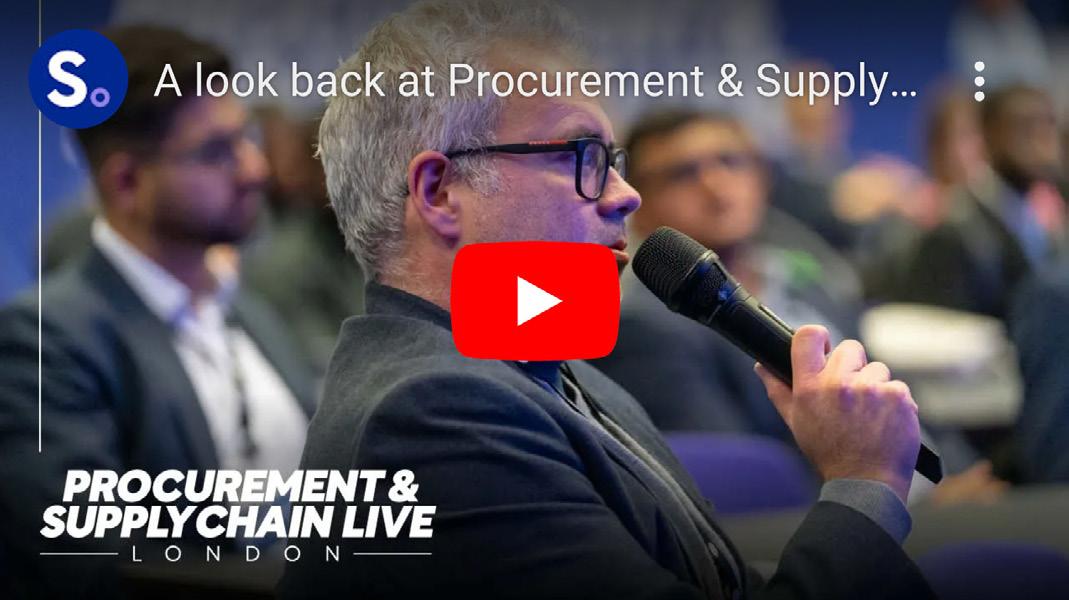

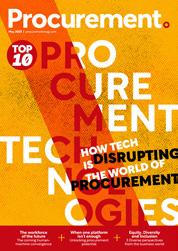
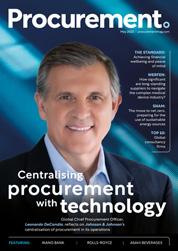
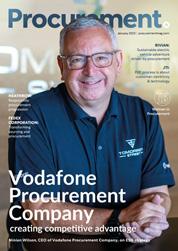
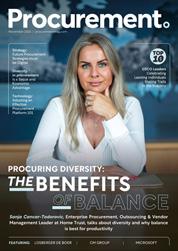
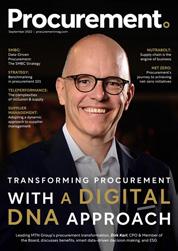







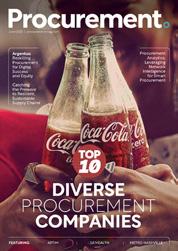





































Procurement magazine is an established and trusted voice with an engaged and highly targeted audience of 70,000 global executives







Digital Magazine

Website Newsletters
Industry Data & Demand Generation

Webinars: Creation & Promotion
White Papers & Research Reports
Lists: Top 10s & Top 100s
Events: Virtual & In-Person


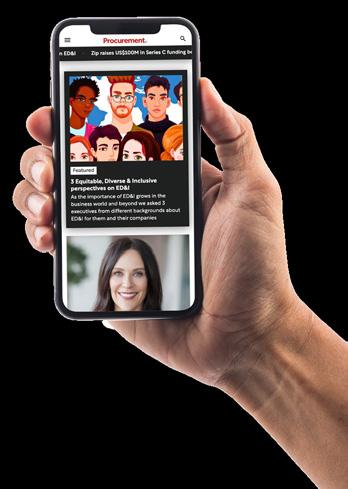
WORK WITH US

EDITOR-IN-CHIEF
ILKHAN OZSEVIM
CHIEF CONTENT OFFICER
SCOTT BIRCH
MANAGING EDITOR
NEIL PERRY
CHIEF DESIGN OFFICER
MATT JOHNSON
HEAD OF DESIGN
ANDY WOOLLACOTT
LEAD DESIGNER
JULIA WAINWRIGHT

FEATURE DESIGNERS
MIMI GUNN
SOPHIE-ANN PINNELL
HECTOR PENROSE
SAM HUBBARD
REBEKAH BIRLESON
ADVERT DESIGNERS
JORDAN WOOD
DANILO CARDOSO
CALLUM HOOD
VIDEO PRODUCTION MANAGER
KIERAN WAITE
SENIOR VIDEOGRAPHER
HUDSON MELDRUM
DIGITAL VIDEO PRODUCERS
MARTA EUGENIO
ERNEST DE NEVE
THOMAS EASTERFORD
DREW HARDMAN

JOSEPH HANNA
SALLY MOUSTAFA
JINGXI WANG
PRODUCTION DIRECTORS
GEORGIA ALLEN
DANIELA KIANICKOVÁ
PRODUCTION MANAGERS
JANE ARNETA
MARIA GONZALEZ
CHARLIE KING
YEVHENIIA SUBBOTINA
MARKETING MANAGER
KATHRYN WEBB
PROJECT DIRECTORS
CRAIG KILLINGBACK
MEDIA SALES DIRECTOR
JAMES WHITE
MANAGING DIRECTOR
LEWIS VAUGHAN
CEO
GLEN WHITE

Speaking to The Hackett Group’s Nicolas Walden, Procurement Magazine uncovers the future of risk management in procurement – and it’s data-driven
No stranger to risk, the procurement function has to battle many day-to-day challenges from a variety of sources. Such challenges can come from suppliers (financial stability, quality of product, service provided, delivery times, regulation compliance and ethical standards); markets (volatility, supply chain disruptions; demand changes, price fluctuations; operations (inefficiencies; inadequate controls; and lack of transparency); and compliance (fraud, data privacy, labour practices; and environmental impact). Although there are many methods to mitigate risk, an emerging approach within procurement is ‘cognitive data-driven risk management’. Empowering business to make smarter decisions when securing their supply chain, “data-driven risk management is the future”.
ILKHAN OZSEVIM
ilkhan.ozsevim@bizclikmedia.com


“Cognitive data-driven risk management helps businesses identify and assess risks that are developing in our supply chains, as well as make more informed decisions to mitigate these risks”
The World Bank’s global public procurement database: improving worldwide transparency and efficiency in public procurement



016 FIVE MINS WITH Fabian Lampe, Founder, Advance







6 - 7 September 2023
Business Design Centre, London
SPONSORSHIPS GET YOUR PASS
078 SRM
The strategic benefits of Supplier

Relationship Management

ProcessUnity supports small companies just getting started with vendor risk and large enterprises with the most complex program requirements.
With ProcessUnity Vendor Risk Management, customers quickly streamline their third-party risk management processes and ensure their results will stand up to regulatory scrutiny.

Why do companies choose ProcessUnity Vendor Risk Management for Third-Party Risk Management?
When you combine the strength of our platform with the quality of our people and our time-tested methodologies, we are wellpositioned to help you achieve your program goals quickly.
We are known for our fast deployment times and implementations that lower your costs while also being able to change over time as regulations or requirements change. Request
TOP-RATED PLATFORM
Proven Agility
“No-Code” platform can handle any program regardless of maturity or complexity
Easy Administration
Simple configurations so clients can make changes when needed
End-User Configuration
Dynamic platform that 100% adapts to specific program requirements
Integration
Capable of integrating with enterprise systems and incorporating external content
UNPARALLELED EXPERTISE
Subject-Matter Experts
In-house GRC experts incorporating best practices on behalf of clients
End-to-End
Program designed to support both procurement and information security teams
Customer Success
Product and implementations are based on success with hundreds of clients
Flexible Deployments
Out-of-the-box, best practice solutions or specifically configured platform features
CUSTOMER VALUE
Time to Value
Access to world-class GRC programs faster – usually measured in weeks
Future Proof
As client programs mature, the platform adapts to the evolving requirements
Program Success
Gain full transparency of risks while freeing time for more value-added work
Lower Costs
Decreased total cost of ownership and gain better results with the same resources
Working together with our experts and partner ecosystem, we can help your organisation to meet your program demands today and prepare you with confidence for any future changes and challenges across your vendor landscape.

Washington DC, US
The Global Public Procurement Database (GPPD) is a World Bank initiative that captures data about country procurement and e-procurement systems at a global level.

It is the world’s first database dedicated to the collection of country-specific public procurement information for every country in the world.
The GPPD provides information on all aspects of country public procurement systems –including country profile information, public procurement agency information & public procurement law, eProcurement information, value for money, fair competition & transparency information, and procurement cycle metrics.
Its aim is to promote procurement reform and innovation through improved transparency and knowledge-sharing, providing a publiclyavailable online database of global public procurement information.




“It is scary to start from scratch, but I had to see if it would work”
» There is a concept about the brain having two different sides –one being creative, the other being logic. For me, I’ve always felt that I need to nurture both.
I first touched procurement when I studied marketing and supply chain management. When I finished my studies, there was an opportunity to join a marketing procurement team, which allowed me to nurture both these sides of the brain. From there, my journey went on to category management roles, to procurement consulting, and to working with solution providers.
FABIAN LAMPE
TITLE: FOUNDER
COMPANY: ADVANCE PROCUREMENT

With more than 15 years of experience in the procurement industry, Fabian Lampe’s career began at Bayer as an industrial manager apprentice.
After leaving Bayer in 2014, Lampe began working for Unilever, followed by Deloitte and Archlet.
Today, Lampe is the Founder of his own boutique consultancy –Advance Procurement – focused on procurement and marketing.

» Over the years, my journey in procurement has been quite diverse –from global category manager at Bayer and Unilever to consulting with Deloitte and working for solution providers with advanced sourcing capabilities.

Reflecting on my career, I thought to myself, ‘I’ve seen procurement from the ground, I’ve seen it from consulting, and I’ve seen it from a solution provider viewpoint’.
That is a very unique set up. Very few people experience procurement from these different perspectives. So I believe that this is a very interesting perspective that I can offer.
This is why I decided to start Advance Procurement, a boutique consultancy focused on procurement and marketing. It is scary to start from scratch, but I had to see if it would work.
» We’re a consultancy focused on Procurement and Marketing. In Procurement, we focus on digital transformation, savings programmes, and indirect spend optimisation. In Marketing, we offer end-to-end communication support. We support our customers in becoming strategic in their approach to Marketing, from brand strategy to content creation.

» Once, I had the opportunity to do a purpose workshop to find out my own purpose. I ended up with ‘passionately
“My top priority for the future is to grow the company”
engaging people’, which rings true for me on so many levels.
I believe that this is my greatest achievement in my career: winning over stakeholders and people that others didn’t manage to do.
I’ve had these moments multiple times over the last 15 years, and that is what makes me the most proud.
» My top priority for the future is to grow the company.
Right now, the concept for Advance Procurement is to work with experts, bringing them in as they are needed for
projects instead of the classic consulting company, where you have X employees and find projects for them.
Nevertheless, I would like to grow the company and build out the service offering in both the procurement and marketing services.
My work has shown me that there is a demand to educate industries on the languages and challenges that procurement faces.
So there’s certainly a lot of opportunity to grow and to work with more providers in building a mutual understanding between them and procurement.


Christina Lascaris is an accomplished professional in the field of procurement, with a wealth of knowledge and expertise, acquired through diverse roles across various market segments. Her impressive career journey has led her to her current position as the Senior Director of Indirect Procurement Europe at PepsiCo, where she continues to make significant contributions to the company’s success.
Having joined PepsiCo in 2012, Lascaris started as the Global Procurement Director for Western Europe, focusing on Indirect Procurement. Throughout the years, she has consistently demonstrated exceptional skills and leadership, earning promotions to esteemed positions within the organisation.

Her exceptional performance led to her appointments as the Global Procurement Director for Manufacturing Services & Supplies, Energy, and Indirect Services.
In her present capacity, Lascaris holds the critical responsibility of overseeing the procurement of seasonings and ingredients across Europe for PepsiCo.
This vital role entails developing and executing strategies that align with PepsiCo’s global nutritional and functional food strategy.
Lascaris brings with her a rich tapestry of experiences from her illustrious career. Prior to joining PepsiCo, she held prominent positions at Plastic Omnium as the Europe Indirect Purchasing Manager and at Roche as the Packaging & Raw Materials Purchasing Manager. These roles allowed her to gain invaluable expertise in various facets of procurement and supply chain management.

The remarkable journey of procurement master Christina Lascaris: leading the way in indirect procurement and driving sustainable growth and innovation
A hallmark of her career is her proficiency in transforming indirect organisations. She has consistently delivered exceptional results by enhancing procurement productivity, devising effective sourcing strategies, and implementing best-in-class procure-to-pay processes.
Her astute business acumen and meticulous approach have made her an instrumental figure in driving due diligence, change management, and process optimisation initiatives.

Complementing her extensive professional experience, Lascaris holds two esteemed university degrees. She obtained a master’s degree in Biology, Biochemistry, Environment & Ecotoxicology,
 IMAGE: PEPSICO
IMAGE: PEPSICO
IMAGE: PEPSICO
IMAGE: PEPSICO
which equipped her with a deep understanding of scientific principles and environmental considerations.
Not content to stop there, she pursued an MBA specialising in Purchasing, Finance, Management & Marketing, further strengthening her knowledge and expertise in the realm of procurement and business strategy.
Her passion for her work, coupled with her unwavering dedication, has garnered her a reputation as a procurement expert and influential leader within the industry.
Her ability to navigate complex procurement challenges, adapt to dynamic market conditions,
and foster collaborations with crossfunctional teams has been instrumental in driving the success of PepsiCo’s Indirect Procurement Europe division.


11 Years with Pepsico 2012 Year joined #4 Position in Top 100 Women in Procurementt
As Lascaris continues to excel in her role at PepsiCo, she remains committed to leveraging her expertise and experience to advance the company’s procurement strategies, foster innovation, and drive sustainable growth. Her unwavering pursuit of excellence and her continuous drive for professional development make her a formidable force in the field of procurement, ensuring PepsiCo’s continued success in the highly competitive global market.
Tasty Beats | Pepsi WATCH NOW
PRODUCED BY:
CRAIG
KILLINGBACK

Bridgestone, a global leader in tyres and sustainable mobility solutions, was founded in 1931 by Shojiro Ishibashi. The company’s name is a direct translation of the Japanese word ‘Ishibashi’ into English. Its main mission is to serve society with superior quality. Bridgestone takes pride in delivering a wide range of best-in-class tyres and solutions that cater to the evolving mobility needs of its such as data-driven services, telematics, sensor devices, and tyre management systems. These solutions enhance productivity, cost efficiency, and sustainability. By equipping fleets with data intelligence and sensor technology, Bridgestone enables them to maintain their vehicles and provide optimal service. This combination of tyre manufacturing and mobility solutions defines Bridgestone as a mobility-driven solution company.
Lars Bettermann is the CPO for Bridgestone EMIA, overseeing procurement operations in Europe, the Middle East, Africa and India. He leads a team of around 150 procurement professionals to drive the company’s procurement activities into the future.
Lars Bettermann’s professional journey in procurement began approximately 25 years ago when he joined Ford Motor Company. Prior to that

LARS BETTERMANN CPO EMIA, BRIDGESTONE
“Proximity to stakeholders ensures that the procurement team comprehends their needs and can effectively serve them”
Bridgestone’s CPO, Lars Bettermann, on how the global leader in tyres and sustainable mobility solutions have transformed their procurement function

he says, he never imagined procurement to be such an interesting place to be.

“My time at Ford became a transformative experience, allowing me to fill my toolbox with the most essential procurement skills.” Lars Bettermann gained expertise in supplier negotiations, establishing long-term agreements, and understanding the critical interdependencies within the value chain, spending several years at Ford; building a strong foundation for his work in procurement.
In his current role, he now has full responsibility for all procurement activities in the EMIA region.
LARS BETTERMANN CPO EMIA, BRIDGESTONE
“In the value deliver chain, a crucial role is played by close partnership with suppliers, moving from a cost factor to a strategic long-term collaboration”
TITLE: CPO EMIA
COMPANY: BRIDGESTONE
Lars Bettermann is a procurement expert, having 25+ years of professional experience in procurement relevant subjects and project scope. He holds a university degree in business administration. His know-how is based on the operational fundament he built up in the automotive sector enhanced with the methodical and strategic application in strategic sourcing project, being a strategy consultant for more than a decade. Today he is heading procurement at Bridgestone EMIA as a CPO, holding responsibility for all source-to-pay activities across the company.

Over the course of its nearly hundredyear history, Bridgestone has witnessed significant changes and advancements. Its fundamental product - the tyre - has undergone remarkable developments to become more performant, efficient, safe and sustainable over time.
More than 5 years ago, the company embarked on a transformation into a mobility solutions company to ensure it captures business opportunities arising from data and digital transformation offering efficiency and convenience .







By diversifying into mobility solutions, Bridgestone has positioned itself for the future, offering a balanced mix of products and services to meet evolving market needs.
When Lars Bettermann joined Bridgestone two and a half years ago, he identified an opportunity to further leverage the value that procurement could bring to the organisation.
At that time, the procurement department primarily focused on raw materials procurement. Lars Bettermann initiated a transformation journey to enhance the procurement function, which is still ongoing.
The transformation efforts encompassed several key aspects:

Firstly, there was a strong emphasis on upskilling the existing raw materials team. Significant investments were made in providing additional training and equipping the team with the necessary tools and resources to drive even more value in their procurement activities.
Secondly, a new procurement department was established to cater to CapEx (Capital Expenditure) and Bridgestone’s indirect procurement needs; focusing on equipping the company’s plants with all the machinery they need in manufacturing their tyres, as well as understanding the needs of the business in the headquarter and the sales offices.
Lars Bettermann’s vision was to have a team that closely understands the requirements of internal stakeholders. He says, “Proximity to stakeholders
ensures that the procurement team comprehends their needs and can effectively serve them.”
Thirdly, Bridgestone entered into a strategic partnership with Accenture for managing indirect procurement categories.
Lars Bettermann says this decision was driven by the desire to achieve operational efficiency from the outset and to tap into Accenture’s expertise in areas that are not Bridgestone’s core competency. “The partnership with Accenture enabled Bridgestone to benefit from specialised knowledge and industry insights in categories such as travel, IT, spare parts and logistics.”

LARS BETTERMANN CPO EMIA, BRIDGESTONE
“Rooted in the visionary mindset of founder Shojiro Ishibashi, our E8 commitment recognises the importance of businesses in contributing to societal wellbeing”
This approach allowed Bridgestone to optimise the utilisation of resources and ensure access to the best market offerings in those areas. Lars Bettermann points out that the success of this transformation relies on the unified commitment of the entire team, regardless of whether they are from Accenture or Bridgestone.
“The shared goal is to prioritise stakeholder relevance, maintain close collaboration, and deliver the best value from a procurement perspective,” he says. These three components continue to drive the team’s day-to-day activities as they progress on their transformation journey.

Lars Bettermann says the primary objective of a procurement professional is to effectively manage all the company’s spends in the market. “This involves ensuring that all demands are driven through the appropriate procurement channels and avoiding ad hoc purchasing outside of the established processes.”
Recognising the need for a centralised and user-friendly platform, Bridgestone launched its procurement portal, known as B-Store, on January 1st, 2022.
The B-Store portal serves as a single access point for all employee demands.

“B-Store’s purpose is to guide users to the proper channels based on their specific needs,” says Lars Bettermann. “For instance, if an employee requires travel-related services, they can access the portal, click on the travel button, and swiftly be directed to the dedicated travel portal. Similarly, employees seeking spare parts or office equipment can easily locate the relevant catalogues or submit their demands for processing and assistance from the shared service centres.”
The implementation of the procurement portal was crucial for the day-to-day success of Bridgestone’s procurement activities. Lars Bettermann likens the portal to a supermarket that needs to be well-stocked and attractive to employees - encouraging them to use it as their go-to resource.



The B-Store is powered by SAP’s widely-recognised Ariba tool. Lars Bettermann says that the key challenge however, lies in effectively implementing and making the tool work for the organisation’s specific needs.
“Throughout the year 2022, Bridgestone focused on ensuring the functionality and user-friendliness of the B-Store. They initiated a hands-on approach by guiding employees through the portal, both at manufacturing facilities and in various offices, including the headquarters and the more than 20 regional sales offices,” he says.
“By providing the necessary support and guidance, Bridgestone aimed to familiarise employees with the B-Store and facilitate their ability to find and fulfil their procurement requirements. Now, after 17 months since its launch, we consider the buying platform to be a success. While we have not yet achieved 100% adoption, the usage rates have significantly increased, demonstrating positive progress.
The continuous growth in numbers and positive feedback we are seeing, reaffirm that we are on the right track, and we remain committed to further enhancing its effectiveness and adoption rate.”
The Bridgestone E8 Commitment was established in early 2022 as Bridgestone’s global corporate commitment. It represents the company’s dedication to delivering value to society, customers and future generations. “Rooted in the company’s mission to serve society with superior quality, our E8 commitment recognises the importance of businesses in contributing to a sustainable future,” says Lars Bettermann.

The E8 Commitment encompasses eight focal points that serve as guiding principles for Bridgestone’s strategic priorities, decision-making, and actions worldwide. These focal points are:
• Energy
• Ecology
• Efficiency
• Extension
• Economy
• Emotion
• Ease
• Empowerment
They provide a comprehensive framework for the company’s sustainability efforts, ensuring alignment and coherence across all regions and aspects of Bridgestone’s operations. The E8 Commitment is seen as a powerful expression of Bridgestone’s commitment to conducting business in a sustainable manner. It establishes clear goals and targets for the company to strive towards, facilitating its progress towards a more sustainable and responsible future.
People, planet and procurement-diversified Lars Bettermann’s goals involve supporting the company’s sustainability targets for being 50% CO2 reduction neutral by 2030, and 100% by 2050 with 100% sustained material. This can only be reached by establishing the right partnerships and ecosystem. Another key aspect is the creation and management of a cohesive team of procurement professionals who can effectively communicate and work together.
Lars Bettermann recognises the value of diversity within the team, highlighting that individuals bring different backgrounds,

cultures and experiences. As a leader, he believes in harnessing the strengths of these diverse components to achieve success. Effective communication plays a crucial role in motivating the team and meeting daily challenges.
Bridgestone’s approach to partnerships
Bridgestone relies on a wide range of partners for success. Rather than listing all 20,000 suppliers, he focuses on the concept of partnership itself. “To ensure a sustainable future,” he says, “Bridgestone requires partners in specific core categories and key raw materials necessary for tyre production.
1931 Bridgestone was founded by Shojiro Ishibashi. The company’s name is a direct translation of ‘Ishibashi’ into English
“There are three critical ingredients for tyre manufacturing: steel cord, synthetic rubber, and carbon black. Bridgestone recognises the importance of


“B-Store’s purpose is to guide users to the proper channels based on their specific needs”
these materials in achieving its sustainability goals, particularly in implementing circular economy practices. By maximising the use of tyres and extracting valuable components for recycling, Bridgestone aims to create a circular flow that supports the production of new tyres. Considering these core categories, the partners especially in steel cord, synthetic rubber, and carbon black become vital for Bridgestone’s success.”
He suggests that failure to secure reliable partners in these areas would hinder the company’s ability to achieve its targets. “However,” he says, “it’s essential to acknowledge the significance of all partners, including those involved in all other raw materials but also in machinery, marketing, IT, consulting, logistics and others.”
It is the entire ecosystem of partners that contribute to building

LARS BETTERMANN CPO EMIA, BRIDGESTONE
“The goal is to prioritise stakeholder relevance, maintain close collaboration, and deliver the best value from a procurement perspective”
the necessary foundation and ecosystem for Bridgestone’s operations.
Lars Bettermann says in the next 12 to 18 months, Bridgestone will be focused on several key priorities. “Firstly, we need to prepare ourselves to meet our 2030 targets for sustained materials. This entails establishing the right partnerships, driving innovation, and developing the optimal mix of raw materials to continue building premium tyres.
“Additionally, we have encountered challenges due to global crises like the Russian-Ukrainian war.
“The impact of these crises on our supply base has been significant. In 2022, we dedicated substantial effort to de-source materials and seek alternative
suppliers that align with our ambitions and values.

“Looking ahead, our main objective is to ensure stability and effectiveness in our partnerships during the next 12 to 18 months. We need to deliver on our commitments and promises, as this will contribute to Bridgestone’s transformation into a sustainable mobility solutions company.”
Overall, the coming months will be crucial for Bridgestone, as it pushes to achieve its sustainability goals, adapt to global challenges and drive Bridgestone’s evolution in the industry.



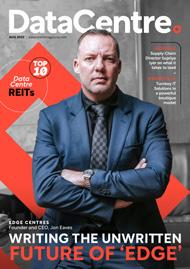







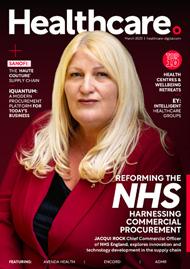



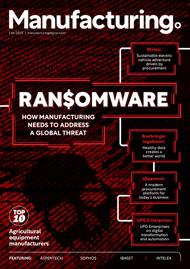







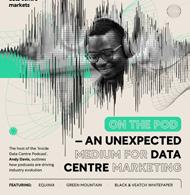
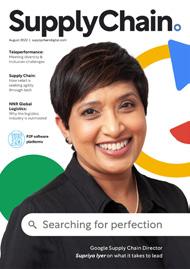

















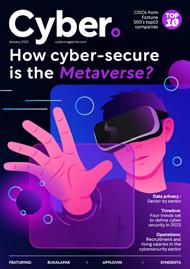


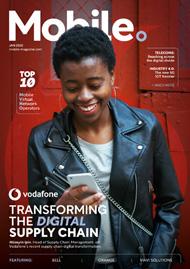














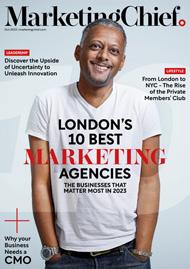



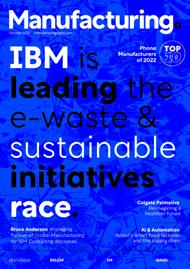


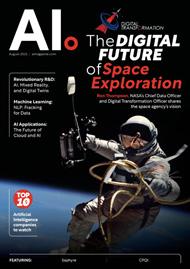






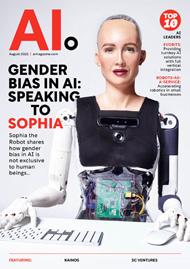

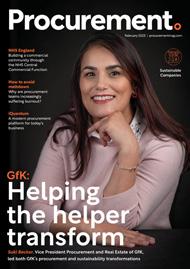












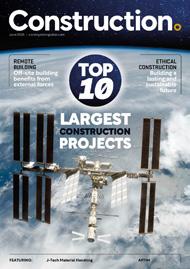




























Speaking to The Hackett Group’s Nicolas Walden, Procurement Magazine uncovers the future of risk management in procurement, and it’s data-driven
WRITTEN BY: GEORGIA WILSONNo stranger to risk, the procurement function has to battle many day-to-day challenges from a variety of sources. Such challenges can come from suppliers (financial stability, quality of product, service provided, delivery times, regulation compliance, ethical standards); markets (volatility, supply chain disruptions, demand changes, price fluctuations); operations (inefficiencies, inadequate controls, lack of transparency); and compliance (fraud, data privacy, labour practices, environmental impact).
Whilst there are many methods to mitigate risk, an emerging approach within procurement is ‘cognitive data-driven risk management’. Empowering businesses to make smarter decisions when securing their supply chain, “data-driven risk management is the future”, with there being “no feasible alternative”, according to Nicolas Walden, Associate Principal and UK & Europe Practice



An award-winning collaborative supplier relationship platform

Suppeco leverages the potential in relationships to solve key challenges within the value chain
A practical solution built for the real world
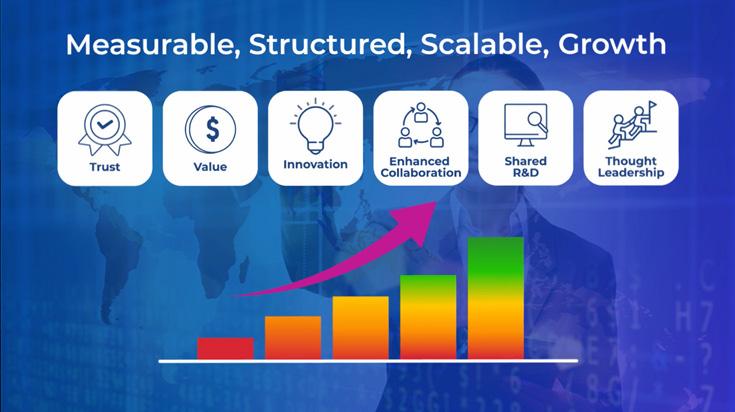

Using advanced data analytics and cognitive technologies – such as artificial intelligence (AI) and machine learning (ML) – to analyse data from suppliers, market trends, regulatory requirements, and internal processes, this approach identifies and mitigates potential risks in procurement.
“Cognitive data-driven risk management helps businesses identify and assess risks that are developing in our supply chains, as well as make more informed decisions to mitigate these risks. It’s used for the most critical supply chains, such as semiconductors, textiles, and automotive,” explains Walden.

NICOLAS WALDEN ASSOCIATE PRINCIPAL AND UK & EUROPE PRACTICE LEADER, PROCUREMENT ADVISORY, THE HACKETT GROUP
“Modern supply chains are extremely complex beasts with many moving parts”
“We’ve likely all seen what generative AI tools like ChatGPT and others can do to make our day more productive. Imagine the advantages once that capability can further empower our modern risk management solutions using machine learning, advanced decision-making models, and natural language programming.”

Adopting cognitive data-driven risk management in procurement offers a competitive advantage to its users. Those in the function can proactively identify potential risks and develop effective strategies to mitigate them. As a result, the likelihood of experiencing supply chain disruptions reduces and overall risk management processes are improved.
“I see the key benefits as speed, productivity, and analysis. Modern supply chains are complex beasts with many moving parts. Plus, the list of supply risks is ever-growing; it is in the procurement team’s best interest to understand how risks may be developing, ranging from the classic financial or inventory risks, all the way through to geographical and geopolitical risk,” comments Walden.
He continues: “Artificial intelligence tools with powerful analytical capabilities are perfect to ingest, review, analyse, and bring to our attention the most important topics - sort of like finding that metaphorical needle in the haystack. For humans to perform the equivalent would unfeasibly require many more resources.”
Other benefits of cognitive data-driven risk management included supplier risk and performance management – often a top challenge for procurement professionals. Using the power of AL and ML to analyse supplier data can help procurement to gain


“Data-driven risk management is the future. There really is no feasible alternative”
NICOLAS WALDEN SSOCIATE PRINCIPAL AND UK & EUROPE PRACTICE LEADER, PROCUREMENT ADVISORY, THE HACKETT GROUP
better insights into supplier behaviour and associated risks to make more informed decisions during supplier evaluation, monitoring, and compliance management.
“Cognitive data-driven risk management for procurement is undoubtedly a major enabler for your organisations to keep you ahead of the curve in the dynamic business environment, where risks can surface abruptly and can have considerable threat to the bottom line, With the increasing complexity of global supply chains and growing regulatory requirements, cognitive data-driven risk management for procurement is becoming an essential tool to ensure compliance and minimise risks,” explains Zycus.
• Define the problem
• Gather the data
• Choose the right technology
• Train the system
• Monitor and evaluate
• Engage stakeholders
“Implementing cognitive procurement requires careful planning, data gathering, technology selection, training, and evaluation. By following these steps, you can improve your procurement processes and achieve goals like cost savings, efficiency gains, improved supplier relationships, fraud prevention, improved supplier performance, and contract compliance.” – Zycus

Like all strategies, cognitive data-driven risk management isn’t without its own set of challenges, with Walden explaining that “the most common challenge” is “access to highquality, up-to-date data, and then feeding it to the AI so it can be acted on”.
“Another challenge is negotiating the limitations around how creative and innovative the AI can be, particularly in terms of proposing or recommending solutions to risks and issues. Artificial intelligence is
fantastic at following business rules and logic. However, humans still have the advantage when it comes to creativity, innovation, and troubleshooting.”
In conclusion, implementing cognitive data-driven risk management requires lots of planning, high quality data, careful technology selection, training and evaluation. But getting this right, will be a recipe for success for procurement professionals to gain a competitive advantage when it comes to making smarter decisions when securing their supply chain.

“Cognitive data-driven risk management helps businesses identify and assess risks that are developing in our supply chains, as well as make more informed decisions to mitigate these risks”
NICOLAS WALDEN
ASSOCIATE PRINCIPAL AND UK & EUROPE PRACTICE LEADER, PROCUREMENT ADVISORY, THE HACKETT GROUP






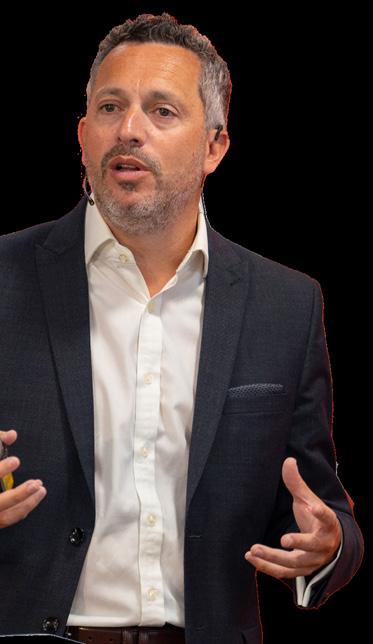

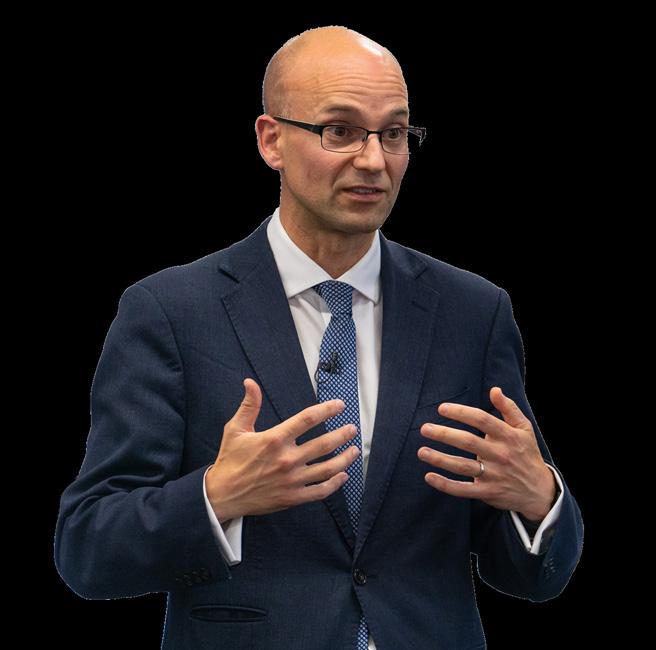






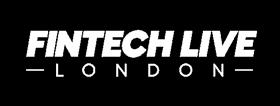





Samir Bodas and Monish Darda saw the untapped power of the cloud as an opportunity to enable businesses with realtime data, helping them to move faster, smarter, and more efficiently. What started in 2009 as a vision to deliver transformational technology that brings more trust and certainty to the world has evolved into Icertis, an analyst-validated leader in Contract Lifecycle Management (CLM) and the pioneer of contract intelligence – a unique category of software
that leverages AI to turn static documents into strategic advantages.

Icertis’ journey to transform the foundation of commerce through contracts has since evolved to establish the company as the preeminent innovator in AI-powered contract intelligence. Icertis has boldly pursued the vision of enterprise-wide contract transformation for over a decade and continues to build momentum as the world’s most iconic brands – 30% of Fortune 100 companies – look to increase revenue, reduce costs, ensure compliance

As Chief Evangelist at Icertis, Bernadette Bulacan says contract Intelligence is the future of contract lifecycle management, impacting revenue, costs, compliance and risk
and manage risk with Icertis. Such immense figures are testament to Icertis being, beyond mere software, a virtual movement in the CLM world. And every movement needs an evangelist.


Enter Bernadette Bulacan. Bulacan is Chief Evangelist at Icertis, responsible for sharing contract management best practices with legal and procurement teams – and evangelising innovative technologies like AI, ML and blockchain.
A brief history: prior to her role at Icertis, Bulacan was the Co-Founder and Assistant
 Location technology leader HERE Technologies digitised 70,000 legacy contracts to unlock valuable data
Location technology leader HERE Technologies digitised 70,000 legacy contracts to unlock valuable data

Contract Intelligence applies AI to structured and connected contract data, and integrates that data with major software systems”
BERNADETTE BULACAN CHIEF EVANGELIST, ICERTIS
General Counsel of Serengeti Law, which created a leading e-billing and matter management platform.
Her career has seen a trajectory of different technologies, helping legal teams cogitate over how to leverage tech to augment both the practice and business of law. Currently focused on digitally transforming enterprises with CLM, Bulacan dives straight into the newest wave.
Where CLM and AI meet, contract intelligence is born
“Contracts are the foundation of commerce, and play an essential role in every company’s digital transformation,” she says. “The data from contracts offers one of the largest untapped opportunities to positively impact revenue, costs, compliance, and risk – vital outcomes in the current business environment.
“CLM technology continues to gain widespread adoption; however, forwardlooking businesses are moving beyond simple CLM into contract intelligence, which applies AI to structured and connected contract data, and integrates that data with major software systems like a company’s ERP to go beyond pre-signature efficiencies in terms of value.”
Contract intelligence connects critical data processes that drive strategic outcomes across the enterprise and ensures the intent of commercial agreements is fully realised.

Icertis differentiates itself from traditional CLM by combining purpose-built AI with the industry’s largest and richest enterprise contract data lake of 2 billion metadata and transactional elements. “This creates meaningful value for enterprises across contract efficiency, insights, and intent realisation,” she says.

Limited visibility and transparency, slow contract turnaround times, contract noncompliance, lack of standardisation, and mismanagement of contract renewal and expiration dates present common challenges for today’s businesses.

“CLM technology continues to gain widespread adoption; however, forwardlooking businesses are moving beyond simple CLM into contract intelligence”
BERNADETTE BULACAN CHIEF EVANGELIST, ICERTIS
Additionally, a lack of connectivity between contract data and major software systems responsible for customer data, supplier data, and enterprise resource data can impact efficiency and strategic outcomes across the organisation. “This is where contract intelligence presents a golden opportunity for demonstrating value,” says Bulacan.
The Icertis Contract Intelligence (ICI) platform is built to address these challenges, and to meet the complex requirements of large-scale enterprises that manage thousands, if not millions of contracts.
Leveraging its proprietary AI models and the largest contract data lake in the industry, Icertis breaks down silos and surfaces unique

insights to turn contracts into a powerful lever for risk avoidance, increased efficiency, and quantifiably enhanced performance.
Heightened expectations around Environmental, Social, and Governance (ESG) measures are driving companies to commit to more socially responsible approaches to commerce, and improve their ability to demonstrate compliance as new regulations become increasingly widespread.
For example, the Corporate Sustainability Reporting Directive (CSRD) is transforming sustainability reporting for companies headquartered outside the EU which are conducting operations or business

activities within its region. While there may be regulatory penalties associated with noncompliance, an even greater threat for organisations is the reputational risk for failure to comply or, worse, allegations of green-washing.
“Contract intelligence can identify and extract obligations at scale, to help businesses improve the visibility and transparency of supply chains, embed ESG requirements into customer and third-party contracts, and ensure compliance with ESG goals,” she says.
“A recent Economist Impact survey sponsored by Icertis found that 70 percent of companies consider contract language an effective tool in enforcing ESG standards, including climate commitment.

“However, manually extracting and monitoring obligations from these agreements is often labour intensive, and hidden in dense legal language. That’s why it’s imperative for businesses to begin integrating contract intelligence into their enterprise technology stacks now, in order to prepare for what lies ahead.”

Icertis’
intelligence: The fifth system of record
Bulacan says when selecting a CLM solution, companies should look for functionality that’s more than just a document management system. Features that enable deep insights into contract data, scalability, and out-of-the-box integrations with other systems are also important to meet the needs of the business.
“The data from contracts offers one of the largest untapped opportunities to positively impact revenue, costs, compliance and risk”
BERNADETTE BULACAN CHIEF EVANGELIST, ICERTIS
German automotive manufacturer Mercedes-Benz operates in an industry that is constantly evolving with new challengers, regulations and technologies.

To stay ahead of these changes, the company needed to rethink the systems that run their business and approached Icertis to digitally transform their contracts. Their primary goal was to establish a single source of truth for all
contracts, obtain data insights across all agreements, and guarantee supplier compliance.
With Icertis, Mercedes-Benz decreased its contract turnaround time by 83%: from six weeks – to just one. The company also centralised data from over 500,000 suppliers, and connected that data across enterprise systems to support critical outcomes around revenue, savings and risk. The numbers speak for themselves.
“Traditional CLM is focused on presignature contract efficiency, but Icertis is uniquely positioned with contract intelligence to help businesses realise greater value by connecting contract data across the enterprise, and integrating it with major software systems.


“By incorporating contract data into the processes it powers, contract intelligence becomes the fifth system of record, equally as essential to a company’s core operations as its ERP, CRM, HCM, and SCM solutions.”
Icertis also differentiates itself with enterprise-grade capabilities, security and AI innovation backed by partners like PwC and Microsoft.
According to Patrick Reymann, Research Director of Procurement and Enterprise Applications at IDC: “Icertis was early to adopt and infuse AI capabilities in its platform and is viewed as an industry trendsetter with respect to advanced-level discovery and data mining capabilities.”
Positioned as a leader, Icertis is “taking contract management beyond efficiency and visibility to reimagine the impact of every commercial transaction, enabling customers to tap into contract data as one of the largest strategic resources of value for their business”.
Forecasts: Bernadette Bulacan’s vision of the coming CLM world
Asked about the future of CLM as she sees it, Bulacan highlights that AI is certainly having its moment as businesses consider the benefits of using large language models to change the way they work.
“Contract intelligence can embed ESG requirements into customer and thirdparty contracts, and ensure compliance with ESG goals”
BERNADETTEBULACAN
CHIEF EVANGELIST,ICERTIS
“Icertis was early to adopt and infuse AI capabilities in its platform, and is continuing to explore how innovations like generative AI can help businesses increase revenue, reduce costs, improve compliance and eliminate contract-related risks,” she says.


Icertis ExploreAI – a next generation AI-powered contract intelligence partner recently announced by Icertis – is just one example of how the company is leveraging its proprietary AI, enterprise data, contract data, and its own data lake to enable material value that supports business growth for customers both now and into the future.
Pharmaceuticals company Ferring uses Icertis CLM

The Global Supply Chain Awards 2024 will be celebrating the very best in Procurement & Supply Chain with the following categories:
Procurement Transformation Award
–Digital Supply Chain Award –Global Logistics Award –Supplier Diversity Award –Supply Chain Innovation Award –Supply Chain Sustainability Award –Procurement Technology Award

Procurement Consultancy Award –Future Leader Award –Executive of the Year Award –Project of the Year Award –Lifetime Achievement Award




We explore procurement’s role as a driving force for the supply chain industry to achieve its net-zero ambitions
WRITTEN BY: GEORGIA WILSONTraditionally, challenges in the supply chain industry ranged from volatile supply and demand to rising costs and visibility. Today, supply chains have the added pressures of high prioritisation of environmental, social and governance (ESG) efforts, regulations and ratings. The driving force behind this transition comes in a variety of forms but includes consumers, society, banks and investors, the corporate sector, and auditing and service providers.
One crucial priority for those in the industry is meeting net zero initiatives and goals. Despite the urgency to reduce emissions, the road to net zero is “flanked by multiple laws and regulations,” as Jasmin Pennicke, Senior Manager at PwC, explains. To tackle this minefield, “it is clear that you need transparency and reduction measures to achieve carbon neutrality”.
Despite more than 90% of an organisation’s greenhouse gas emissions (GHG) coming from the supply chain, many struggle to make a meaningful dent in them.
“One of the biggest challenges now for companies is to deep dive assess how many emissions they can reduce depending on a certain measure, product, or material,” explains Pennicke, while they continue to battle the usual cost targets.

“The comparison of cost to product carbon footprint will become a decisive criterion in future award decisions,” she adds.

“The comparison of cost to product carbon footprint will become a decisive criterion in future award decisions”
JASMIN PENNICKE SENIOR MANAGER,

The e2open connected supply chain platform provides the end-to-end visibility and collaboration you need to tackle unpredictability. Build trust and confidence with your channel, supply, logistics, and global trade partners. Take control of supply constraints through direct procurement and meet customer commitments in the face of disruptions and scarcity. The connected supply chain. Moving as

Put simply, net zero is the balancing of the amount of greenhouse gases (GHG) produced versus the amount removed from the atmosphere. By reducing and removing emissions from the environment, an organisation can achieve net zero and ensure that what they add is no more than what they take away.
Source: National Grid
For most organisations, carbon accounting practices are by and large at the same level that it was more than 30 years ago. This data immaturity is most noticeable in Scope 3 emissions, which is often spread across multiple spreadsheets or systems, with processing done inconsistently and often relying on secondary data. Though this approach could fly under the radar when used solely for annual sustainability reports, future-ready businesses will need much more accurate, granular, timely and transparent emissions data to maintain their positions in the industry and meet their ESG goals.
To tackle this data gap, collaboration with value-chain partners and alliances that matter will be crucial to build out

emission data sharing networks and new supply ecosystems in order to generate a real impact.

“Building, nurturing, growing, and creating impact from alliances can require significant effort, especially in new territory, such as setting industry standards for carbon accounting or defining decarbonisation best practices in specific raw materials. To avoid spreading themselves too thin, a company can keep a map of its relevant alliances, ecosystems, and partners, regularly assessing their impact potential

against effort, and doubling down on a few,” highlights McKinsey.

“You can’t start your sustainability journey unless you know where you are, and where you want to go,” states the Crown Commercial Service. It is important to consider sustainability as early as possible in procurement. Identify the pain points, priorities and risks within the organisation that can then be outlined as the core themes for suppliers to focus on.
JASMIN PENNICKE SENIOR MANAGER, PWC
“It is clear that you need transparency and reduction measures to achieve carbon neutrality”
However, it’s well-known that 70% of transformations fail despite best efforts, so sustaining engagement with net zero will also be vital in achieving initiatives and goals. Education, maintaining momentum, and keeping up with innovations, technologies and new alliances will be top priorities for those leading the charge. Being clear from the outset on the desired sustainability outcomes and internal policies will also help to drive engagement.
As a result, Scope 3 – of which procurement is responsible for the largest proportion of — will be vital for supply chains going forward if they are to become net zero. The key will be for organisations to tackle the missing link between corporate and operational levels in procurement by working together holistically. Pennicke concludes that connecting the corporate and operative carbon footprint by deriving and prioritising mitigation strategies along the value chain, procurement and the wider supply chain can realise results according to ESG targets.

“One of the biggest challenges now [for companies] is to deep-dive assess how much emissions they can reduce depending on a certain measure, product, or material”
JASMIN PENNICKE SENIOR MANAGER, PWC

• Understanding global, regional, and local actions
• Support from mission, culture, strategy, and people
• Corporate Social Responsibility (CSR) commitment from leadership
• Successful integration of strategic and operational decision making
• Performance measurements and appropriate reward systems
• A systematic risk management approach
• Transparency and wellstructured communication
• Seeing sustainability as an opportunity for innovation

 WRITTEN BY: GEORGIA WILSON
Andrea Greenwald, Senior Director Analyst, Gartner’s Procurement Advisory Practice on the strategic benefits of effective supplier relationship management
WRITTEN BY: GEORGIA WILSON
Andrea Greenwald, Senior Director Analyst, Gartner’s Procurement Advisory Practice on the strategic benefits of effective supplier relationship management
For those seeking greater, long term value from their suppliers, supplier relationship management (SRM) is an integral component of the procurement function. With no end in sight to the volatility and disruption of the supply chain industry, and no ability to predict the risks to come, “both SRM and category management have become increasingly important as an operating model for organisations hoping to navigate the turmoil”, according to Andrea Greenwald, Senior Director Analyst for Gartner’s Procurement Advisory Practice.
A well-designed SRM programme can help companies to increase their collaboration and identify the right kind of suppliers suited to their business, product and beliefs. It can also help to improve cost optimisation, top-line growth, supplier innovation, and process improvements.
Greenwald explains that the perfect recipe for successful SRM is to: “define the charter for the SRM programme, segment suppliers for criticality and risk to your organisation, develop a governance model to manage said suppliers, map and gain buy in from all stakeholders, and govern the suppliers according to the defined governance.”
Following this ‘recipe for success’, helps to develop a reputation of being a ‘customer of choice’ benefiting from competitive preferences from scarce resources across a critical mass of suppliers within an organisation’s supply base.
“To be a customer of choice, sourcing and procurement organisations must consistently exhibit specific customer-ofchoice behaviours with strategic suppliers to build a joint relationship and trust – such as



sharing strategic information, taking the long view and living up to your commitments,” says Greenwald.


When it comes to identifying these strategic suppliers Greenwald explains that one effective method is the ‘kraljic matrix’. “The kraljic matrix is the most common methodology for segmenting suppliers by strategic, tactical, leveraged and bottleneck. This two-by-two methodology of scoring by risk and impact is just one methodology to identify the level of importance of a given supplier. We recommend customising the segmentation model to what your company is looking to achieve out of SRM.”

“SRM, in my opinion, is better conducted in-house since influence is the magic ingredient to make it all work”
ANDREA GREENWALD SENIOR DIRECTOR ANALYST FOR GARTNER’S PROCUREMENT ADVISORY PRACTICE
CIPS Relationship Spectrum
To understand the level of mutual commitment to a buyer/supplier relationship, the CIPS Relationship Spectrum considers trust, transparency, information sharing, risk management and mitigation, and communication. As the levels rise, so too does the strength of the relationship between both parties.

HIGH Levels of commitment to the relationship from the supplier

Co-destiny Partnership Collaborative Strategic
Outsourced
Single Source
Transactional Bespoke
Arm’s-length Moderate
Adversarial
LOW HIGH
While good relationships will help to eliminate waste activities within the supply chain, Greenwald warns that “lack of internal buy-in, lack of supplier willingness, and competing priorities and internal resourcing” are common challenges to overcome when striving for a ‘customer of choice’ reputation. She also highlights that, while Technology can be a helpful tool when it comes to any sort of collaboration activity, “it’s important to know however that supplier management technology as a whole is very fragmented. Therefore, it’s helpful to holistically understand the use case for the technology you are purchasing, since it won’t be able to do everything”.
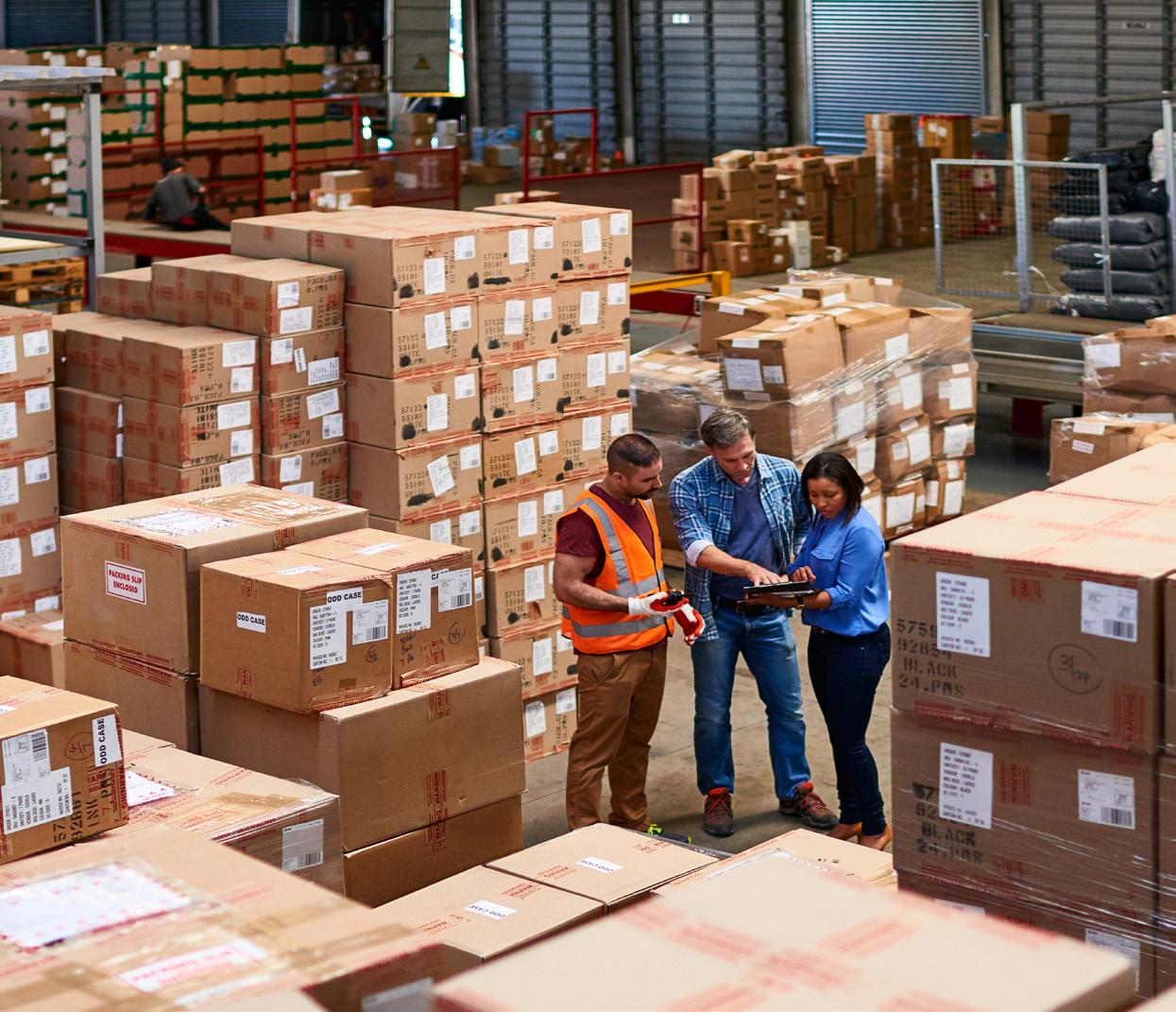 ANDREA
PRACTICE
ANDREA
PRACTICE
GREENWALD SENIOR DIRECTOR ANALYST FOR GARTNER’S PROCUREMENT ADVISORY
“The kraljic matrix is the most common methodology for segmenting suppliers by strategic, tactical, leveraged and bottleneck”
Other challenges to be aware of include:
• Different business cultures. With many organisations sourcing overseas, understanding cultures can be difficult and is something to bear in mind to help build a stronger relationship.


• Corporate social responsibility (CSR) and compliance
It’s mutually beneficial for both parties to understand and meet the ethical, social, and environmental standards set out by the organisation itself and the government of the operating
country. As well as ensuring that regulatory,environmental, and manufacturing standards are met. Ultimately, SRM is all about creating value that is mutually beneficial. It is a strategy that can - and in Greenwald’s opinion – “is better to be conducted in-house since influence is the magic ingredient to make it all work”. Once a relationship has been developed
“Both SRM along with category management have become increasingly important as an operating model for organisations hoping to navigate the turmoil”
with a supplier, it’s crucial to maintain and grow the relationship in creative ways to optimise the entire business value chain beyond the immediate supplier impact. Having real-time visibility into supplier data and performance can help with this, as well as having supporting suppliers to lean on during times of disruption to ensure value and continuity is maintained.


1. Top-down leadership buy-in for the programme.
2. Better prioritisation of the suppliers with which you want to partner with.
3. Tighter governance on how to engage with each supplier.
4. Incentivisation of staff to manage supplier relationships (baked into goals).
5. Be the good you want to see in the world. Good SRM is an art form, be impeccable with your word and come from a place of good intent.
Unveiling the game-changers in procurement software: Meet the top 10 companies reshaping the industry and redefining supply chain management
 WRITTEN BY: ILKHAN OZSEVIM
WRITTEN BY: ILKHAN OZSEVIM
Unlocking the potential of efficient procurement is essential for business.

In this article, we present our definitive list of top 10 procurement software companies revolutionising the industry. From streamlining purchasing processes to optimising supplier management, these innovative companies are driving digital transformation and
delivering exceptional value. Join us as we explore their cutting-edge solutions, empowering organisations to achieve cost savings, enhanced visibility, and seamless collaboration throughout the procurement lifecycle. Discover the leaders shaping the future of procurement and gain insights into the technology shaping the competitive landscape.

Zycus is considered one of the best procurement software companies because of its Cognitive Source to Pay suite that enables sustainable performance and is sophisticated for complex enterprise needs, yet easy and intuitive for its users.
Zycus’ Merlin AI powered software is organically built and seamlessly integrated to address sourcing & procurement, enterprise contract management, and accounts payables requirements. Zycus has also been consistently recognised by analysts such as Gartner and Forrester for its ability to execute and completeness of vision. Zycus is lauded for its advanced AI-powered capabilities, robust analytics, and strong customer support.
zycus.com
Workday offers a range of advanced procurement features, and is known for its ability to empower businesses to capture and analyse data to better understand spend and create more effective policies.

Workday uses machine learning to suggest relevant spend categories for hassle-free requisitions. It also offers best-in-class finance and HR applications with AI built in, which can help organisations make confident decisions faster, drive flawless business and financial operations, and empower their people for maximum performance.
Workday stands out for its intuitive user interface, user experience, and the ability to leverage data from other Workday modules for enhanced insights. workday.com


Basware’s robust portfolio includes purchase-to-pay (P2P), accounts payable automation, e-invoicing, and e-procurement capabilities.

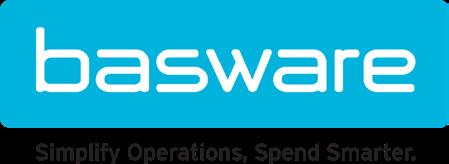
The implementation of Basware’s software empowers organisations to achieve 100% user adoption and streamline the entire procurement process through automation. This automation not only enhances efficiency but also elevates transparency – a critical factor in strengthening supplier relationships and mitigating potential risks within the supply chain.

Basware stands out in the market as it offers one of the most advanced e-procurement solutions available, boasting an exceptional user experience (UX) and incorporating cutting-edge technology that leads the industry. basware.com


Infor’s CloudSuite solution stands out by enabling businesses to digitally transform and optimise their entire supply chain network, from start to finish. By seamlessly connecting critical processes and integrating partners and devices involved in these operations, organisations can achieve enhanced real-time visibility and make datadriven decisions.
A key component of Infor’s offering is Infor Nexus, a robust procure-to-pay automation solution. Designed to streamline the procure-to-pay process, this platform empowers organisations to effectively manage data quality. Infor Nexus operates seamlessly across various enterprise resource planning systems (ERPs) and other disparate systems, automating essential tasks such as document creation, order management, and collaboration. infor.com



Built on the principle that procurement has the potential to unlock substantial strategic value within a company’s expenditure and supply chain, Ivalua offers a comprehensive sourceto-pay platform that’s globally recognised for its flexibility and adaptability.


With a track record of empowering over 300 leading businesses, Ivalua has facilitated the strategic management of a staggering US$500bn in spend, enabling organisations to gain a substantial competitive edge.

Their suite of services is centred aroundthree core pillars, each designed to empower users and enhance procurement and supply chain processes. These are: full digitalisation, management of all spend categories, and improvement of transparency and data quality. ivalua.com
This is the job title Company name
Jaggaer has emerged as a leading player in the procurement software industry, establishing its reputation based on its exceptional capabilities in both downstream and upstream procurement processes.
Jaggaer’s procurement prowess is evidenced by its recognition as a leader in the Gartner Magic Quadrant for Procure to Pay Suites and the Gartner Magic Quadrant for Strategic Sourcing Application Suites. Jaggaer has also achieved the prestigious Gartner Customers’ Choice for Strategic Sourcing Application Suites, cementing its position as a trusted and highly-regarded solution provider. jaggaer.com

With over 20 years of industry experience, GEP is widely recognised as one of the top procurement software companies, distinguished for its exceptional Source-to-Pay (S2P) solutions. GEP’s robust offering, known as SMART, provides users with a comprehensive cloud-native procurement platform that simplifies the management of both direct and indirect spend.
Experts have lauded GEP’s cutting-edge approach, highlighting its state-of-the-art leadership in the procurement software space. GEP is also known for its commitment to rapid advancements in artificial intelligence (AI) and big data analytics utilisation. gep.com
Oracle is a global leader in procurement software, recognised as such primarily due to its comprehensive offering, Oracle Fusion Cloud Procurement. This integrated source-to-settle suite provides customers with a powerful solution that streamlines and automates procurement processes, ultimately driving operational efficiency and cost savings.


Oracle’s commitment to simplifying the buying experience is evident. By providing intuitive and userfriendly interfaces, Oracle Fusion Cloud Procurement ensures a seamless and user-centric purchasing journey. This helps organisations enhance user adoption, streamline purchasing activities, and improve overall productivity. oracle.com


Coupa empowers its clients with a truly cloud-based procurement application that delivers rapid implementation and significant cost savings. With over 200 customers spanning 40 countries, Coupa’s purchasing and procurement software empowers organisations to amplify their spend power and achieve up to an 11% reduction in spending.

A distinguishing feature of Coupa’s offering is its user-centric approach. The Coupa Procurement System is designed with users in mind, facilitating seamless interaction with suppliers and invoices. This user-friendly interface enables employees to quickly and efficiently obtain the items or services they need, enhancing the overall procurement experience.

Notably, Coupa’s industry recognition as a top procurement software company further validates its position in the market. It has received many awards such as the On Demand Top 100 Award and is regarded as one of the hottest procurement businesses. These honours and positive assessments from industry experts highlight Coupa’s effectiveness in delivering tangible benefits to its customers.
coupa.com





That Was Then / This Is Now: SAP Procurement

Our number one pick for top procurement software company goes to SAP Ariba. Ariba stands out as a leading procurement software company, boasting global leadership in the realm of procurement and supply chain solutions. Ariba is at the forefront of modernising procurement processes by introducing innovative approaches that go beyond the fundamentals.
SAP Ariba’s commitment to advancing procurement is evident in its comprehensive suite of solutions. These offerings extend beyond traditional procurement processes and encompass a range of functionalities designed to address diverse needs. Supplier management, strategic sourcing, solutions for direct spend, procurement, financial supply chain, solutions for midsize and growing companies, selling and fulfilment, and

services for buyers are among the extensive array of solutions provided by SAP Ariba. The implementation of SAP Ariba’s solutions have demonstrated the potential to reduce buying cycles by up to 50%, which can contribute to cutting supply costs by 10% and significantly lower processing costs, often ranging from 25% to 60%.
sap.com



8 - 9 November 2023
QEII Centre, London
SPONSORSHIPS GET YOUR PASS